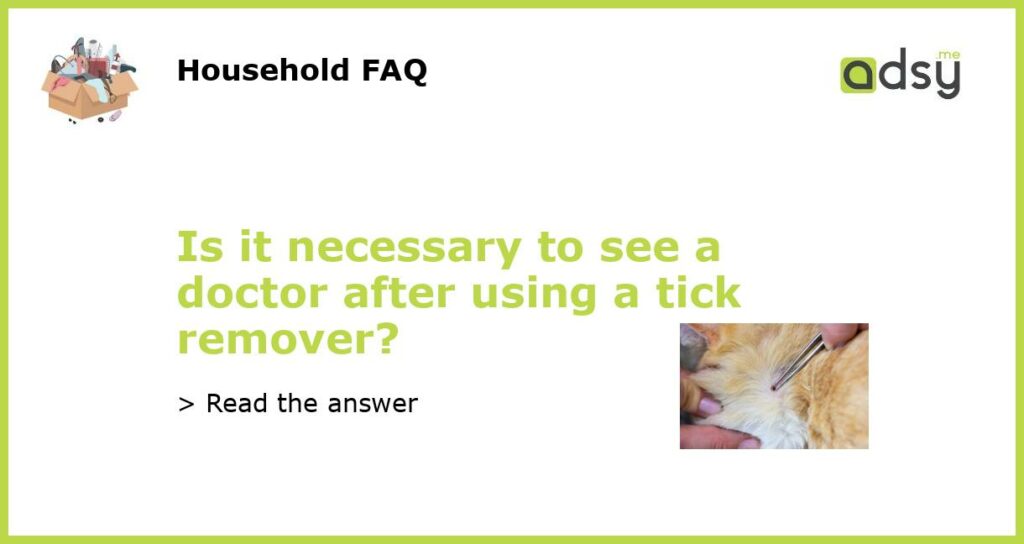The Importance of Tick Removal
Tick removal is an essential part of preventing tick-borne diseases. Ticks are small, blood-sucking parasites that can transmit various illnesses to humans and animals. These diseases can range from mild to severe, and early detection and treatment can make a significant difference in their outcome. When a tick is found and removed, it is crucial to take appropriate action to prevent any potential complications.
Tick Removers and Their Effectiveness
There are various tick removers available on the market, including tweezers, tick hooks, and tick key tools. These tools are designed to safely and effectively remove ticks from the skin without leaving behind any mouthparts, which could lead to infection or other complications. When used correctly, tick removers can be highly effective in removing ticks. However, even with proper removal, there is still a risk of infection or other tick-borne diseases.
Signs of Complications
After using a tick remover, it is essential to monitor the area for any signs of complications. Some common signs of infection include redness, swelling, warmth, and pain at the site of the tick bite. If you experience these symptoms or notice any other concerning signs, it is advisable to seek medical attention. Additionally, if you develop flu-like symptoms or a rash within a few weeks of tick removal, it is important to reach out to a healthcare professional for evaluation and possible treatment.
The Importance of Seeking Medical Advice
While tick removers are designed to effectively remove ticks, they do not eliminate the risk of complications entirely. Seeking medical advice after tick removal is crucial, especially if you are unsure about the type of tick or the duration it was attached to your skin. A healthcare professional can assess your risk of tick-borne diseases based on your geographical location, the type of tick, and the duration of attachment. They can provide guidance on whether additional testing, treatment, or monitoring is necessary.
Prevention and Education
Prevention is always better than cure when it comes to tick-borne diseases. It is essential to take preventive measures like wearing appropriate clothing, using insect repellents, and performing thorough tick checks after spending time in areas where ticks are prevalent. Educating yourself about the risks, symptoms, and prevention strategies can help you make informed decisions and seek appropriate medical advice when necessary. Remember, early detection and treatment can significantly reduce the risk of complications from tick-borne illnesses.






